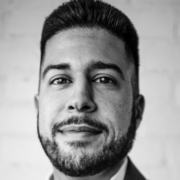With a solid background in theater and a performance that blends contemporary intensity with classical training, actor Fionn Laird is steadily making his mark on screen. He plays Nick, one of the protagonists of The Institute, a new MGM+/Amazon production based on the work of Stephen King. Starring alongside names like Mary-Louise Parker and Ben Barnes, Laird stands out as a young man with psychic abilities trapped in a mysterious research facility, delivering a performance that’s already catching the attention of both critics and audiences.
You have a strong theatrical background, with roles in classics like Macbeth and Richard III. How has this Shakespearean repertoire shaped the way you approach contemporary characters, such as Nick in The Institute?
Given that my early experience in acting was as a witness to brilliant local Shakespearean actors in Calgary, Alberta (I played relatively minor characters), yes, a lot of my foundational acting training is rooted in classical performance. But, when I finally began to work in more contemporary pieces, both on stage and screen, I found that preparation for a character is pretty universal. Obviously, individual artists have their own preferences for their tablework, but there is ultimately very little in contemporary characters that drastically sets them apart from characters in Shakespeare’s canon. At the end of the day it comes down to intent, action, reaction, and the emotion that comes naturally from those. There’s a lot more nuance and work when it comes to classical text, but character work in both camps can borrow a lot from one another.
Nick is described as a “determined badass” who refuses to go down without a fight. How much of that combative spirit exists in you, especially in your journey as an actor?
Haha, I can definitely identify with “determined”, but I’m not sure about “badass”. I would consider myself a relatively driven person; I don’t often limit myself based on my own expectations. However, something I struggle with, both as a person and as an actor, is people-pleasing. It’s good to want the people around you/people you’re working with to like the things you do. Especially in the performing arts, that can work to your benefit. However, knowing when someone/a company/a group of people has asked too much of you is an important and necessary skill to have. Nick possesses that in aces. I aim to be more like Nick in that regard, and so should every young person.
Sharing the screen with names like Mary-Louise Parker and Ben Barnes in a Stephen King adaptation is certainly remarkable. What was the biggest takeaway from that set—either personally or professionally?
It was truly a dream. Having grown up with Ben’s Caspian and having learned about Mary-Louise’s seamless transitions between her stage and screen work, it was quite daunting having to appear in a project with both of them. I think one of my biggest takeaways from the two of them is that it never hurts to be kind, especially in a professional setting. Them, and every other veteran actor on that set was so incredibly generous and guiding. They set a precedent for professionalism and respect. That is something I hope to carry forward.
Stephen King’s work often explores deep fears tied to the human psyche. What was it like diving into a character with psychic abilities in such an oppressive environment like the Institute? Did it affect your own views on control and freedom?
I guess it kind of puts into perspective how dystopian the reality of psychic abilities could potentially be. I mean COME ON. Of course there would be shady organizations wanting to take advantage of exploitable phenomena if psychic abilities were real. It was a little bit off putting, as the shoot went on, to realize how plausible the events of both the book and the show are in the fictional context. King’s writing is incredibly grounded despite its often fantastical themes. It helped me explore the darker, more familiar aspects of what the kids were going through. At first, it was a little depressing. But it also made me realize this: hope is truly the greatest enemy of oppression.
You’ve made a notable transition from stage to television. Is there a fundamental difference in the type of vulnerability required from an actor on stage versus in front of the camera?
Yes. That fundamental difference being a live audience. In a stage production you are sharing your vulnerability with (typically) a great number of people. On camera, that vulnerability is between you and your scene partner. Yes, the director, cinematographer, camera op. and boom op. Are still there, but they aren’t an active participant. Everything is so much more intimate. You can explore in much greater detail your vulnerability and which parts of yourself you choose to reveal. Changes in vocal and body expression become much more nuanced; moment to moment.
Nick was born from the adaptation of a rich literary universe. What was the process like in giving body and soul to this character? Did you have any specific inspiration—or perhaps a key moment—that helped you truly find him?
I think I found Nick the moment I stepped on set on my first day. Or at least I had to find him. It was both mine and Joe Freeman’s first day shooting, and the scene was a casual conversation, so the rapport had to immediately be there. It was a matter of necessity. After that, being with the cast and forming that ensemble was really helpful in finding the soul and human behind Nicky. I had a great foundation after reading the book, and the real-life relationships helped build upon that.
Follow Fionn Laird on Instagram





